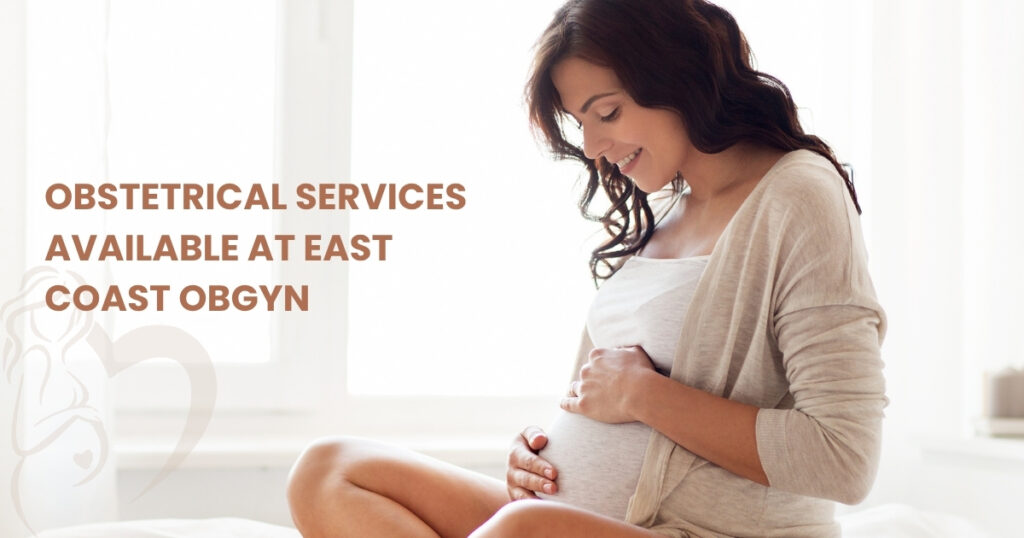Understanding High-Risk Pregnancy and Why It Matters
Pregnancy is an exciting and transformative journey, but it can also present unexpected challenges. When certain risk factors are present, a pregnancy may be labeled as “high-risk.” This simply means that extra care and monitoring are needed to ensure a safe and healthy outcome for both mother and baby.
At East Coast OBGYN, we specialize in high-risk pregnancy management and offer personalized obstetrical services to expectant mothers across Flushing, Queens. Our team is committed to providing the highest standard of care, especially when the stakes are high.
What Qualifies as a High-Risk Pregnancy?
A pregnancy is considered high-risk when there is a greater chance of complications affecting the health of the mother, the baby, or both. This may be due to preexisting medical conditions, pregnancy-related issues, or other contributing factors.
In Flushing, Queens, access to quality obstetric care is critical for managing high-risk pregnancies. With regular assessments, diagnostic screenings, and expert guidance, most high-risk pregnancies can be managed successfully with the right support team.
Common Causes of High-Risk Pregnancy
Age Factors
Pregnancy before the age of 17 or after age 35 is more likely to be classified as high-risk. These age ranges come with increased chances of complications such as high blood pressure, preeclampsia, or premature birth.
Preexisting Health Conditions
Chronic conditions such as diabetes, hypertension, thyroid disorders, autoimmune diseases, or obesity are some of the leading causes of high-risk pregnancy. These conditions may require additional monitoring and adjustments in prenatal care.
Lifestyle and Pregnancy-Related Complications
Factors like smoking, alcohol use, or insufficient prenatal care can increase the risk of complications. Conditions like multiple gestation (twins or more), a history of miscarriage, or problems with the uterus or cervix also raise concern.

High-Risk Pregnancy Signs You Shouldn’t Ignore
Recognizing the high risk pregnancy signs early can be life-saving. If you notice any of the following symptoms, it’s important to contact your healthcare provider immediately:
- Severe abdominal pain or cramping
- Vaginal bleeding or spotting
- Severe headaches or vision changes
- Persistent nausea or vomiting
- Decreased fetal movement
If you’re in the area, consulting an experienced obstetric doctor in Flushing Queens can ensure you receive timely care and avoid unnecessary risks.
Managing a High-Risk Pregnancy: What to Expect
Specialized Monitoring and Treatments
Managing high risk pregnancy often involves more frequent prenatal visits, ultrasounds, and specialized tests. In some cases, medications may be prescribed to manage specific conditions or to reduce the risk of preterm labor.
Role of Early and Frequent Prenatal Care
Early prenatal care helps identify risks before complications develop. Your care team will create a tailored plan that aligns with your medical history and current health status to ensure the safest outcome.
Can You Still Have a Normal Delivery with a High-Risk Pregnancy?
Yes, many women with high-risk pregnancies go on to have healthy, vaginal deliveries. However, this depends on the underlying conditions and how the pregnancy progresses. Certain factors, such as gestational diabetes or preeclampsia, may influence your delivery plan.
At East Coast OBGYN, we work closely with each patient to monitor progress and determine the safest delivery options. Our priority is always the well-being of both mother and child.
When to See a Specialist and What to Ask
In some high-risk cases, your obstetrician may refer you to a maternal-fetal medicine (MFM) specialist. These experts handle the most complex pregnancies and collaborate with your OBGYN to manage care.
What to Ask:
- What specific risks are involved in my pregnancy?
- What additional tests or treatments will I need?
- How often should I be monitored?
- Will I need to deliver earlier than my due date?
Choosing the right provider is crucial, especially when dealing with pregnancy complications. Don’t hesitate to ask detailed questions and ensure you feel supported every step of the way.

Obstetrical Services Available at East Coast OBGYN
At East Coast OBGYN, we provide a full spectrum of obstetrical services tailored for high-risk pregnancies. Located in Flushing, Queens, our clinic offers:
- High-risk pregnancy support and monitoring
- Diagnostic testing and fetal assessments
- Personalized delivery planning
- Ongoing education and emotional support
Whether you’re navigating a first pregnancy or managing a chronic health condition, our experienced team is here to guide you with compassionate and expert care.
Final Thoughts: Take Action Early for a Safer Pregnancy
If you’re pregnant and facing known health challenges or new symptoms, early action is key. Recognizing high-risk pregnancy signs, seeking experienced obstetric care in Flushing, Queens, and having access to a dedicated team like East Coast OBGYN can make all the difference in ensuring a healthy outcome for both you and your baby.
FAQs
What qualifies as a high-risk pregnancy?
A pregnancy may be considered high-risk due to maternal age, preexisting conditions (like diabetes or hypertension), or complications during pregnancy, such as preterm labor or multiple gestations.
What are the most common causes?
Common causes include chronic health conditions, advanced maternal age, substance use, obesity, and past pregnancy complications.
What symptoms should I look out for?
Watch for severe abdominal pain, vaginal bleeding, intense headaches, vision changes, or decreased fetal movement—these may be high-risk pregnancy signs.
How is a high-risk pregnancy managed?
Through more frequent checkups, specialized testing, tailored treatments, and referrals to MFM specialists if needed.
Can I have a normal delivery with a high-risk pregnancy?
Yes, many women can still deliver vaginally, depending on their condition and overall pregnancy progression.
Do I need to see a specialist?
If your pregnancy involves serious health risks or complications, a maternal-fetal medicine specialist may be recommended for advanced care.

